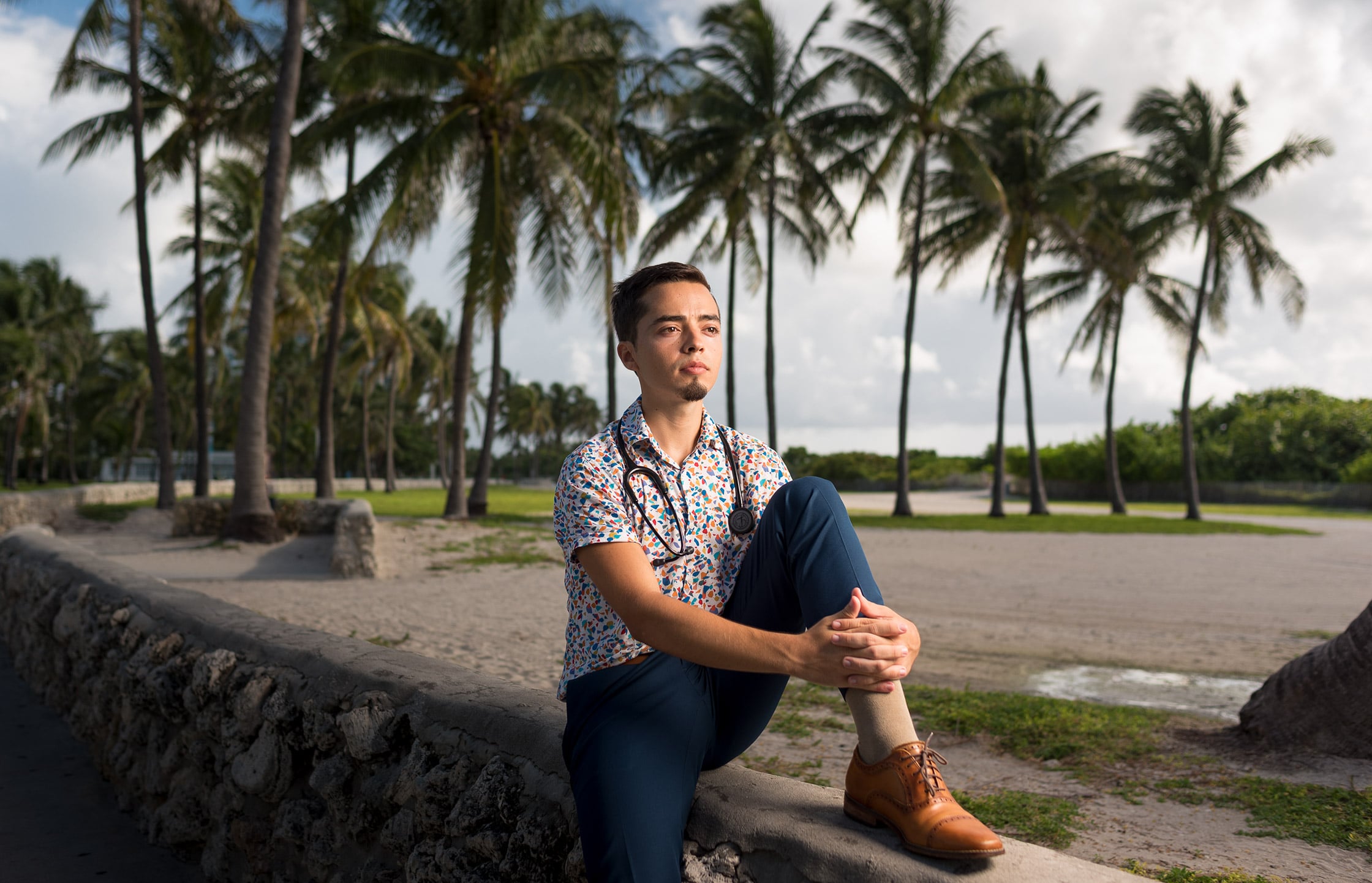An End to HIV/AIDS
At 25, Christopher Garcia-Wilde has never known a world without AIDS. Still, the fourth-year M.D./M.P.H. candidate at the Miller School envisions one — achieved through the kind of social activism that closed the world’s first prison camp for refugees with HIV.

Photograph by Tom Salyer
G
arcia-Wilde was not yet born in the fall of 1991, when the United States imprisoned Yolande Jean and more than 200 other asylum-seeking Haitians who tested positive for the virus that causes AIDS in a detention camp on the Guantanamo Bay Naval Base in Cuba.
But Garcia-Wilde, a seasoned activist who studies the impact of social movements on public health, sees parallels between how the world treats many people living with HIV today and how the U.S. treated Jean and other refugees who fled the wave of terror that followed the military overthrow of Haiti’s first democratically elected president.
“Yolande Jean and fellow refugees at Camp Bulkeley experienced unsafe, unsanitary and deplorable living conditions that were oppressive and diametrically opposed to their health,” Garcia-Wilde wrote in a student perspective for the July issue of the American Journal of Public Health.
Ending HIV/AIDS, he argues, depends on broad coalitions demanding a social transformation to provide housing, health care, healthy foods, clean water and other basic essentials to those who live without.
Last year, during the height of the coronavirus pandemic, Garcia-Wilde spent three days a week at St. John’s Baptist Church in Miami’s Overtown neighborhood, where Dr. Armen Henderson, an assistant professor of medicine at the Miller School and fellow Dream Defenders volunteer, ensured that people experiencing homelessness could find free food, showers, clothes and hygiene products.
Garcia-Wilde, who plans to specialize in pediatrics and internal medicine so that he can help “everyone from newborns to elderly folks,” said his experience at St. John’s reinforced the beliefs he expressed on the 40th anniversary of the first documented HIV cases in the U.S.
“I met a lot of people there who were concerned about their next meal or about losing their things if they used the bathroom,” he said. “They weren’t concerned about taking their meds to prevent or treat HIV. That wasn’t a priority because they were just trying to survive.”
— Maya Bell![]()


